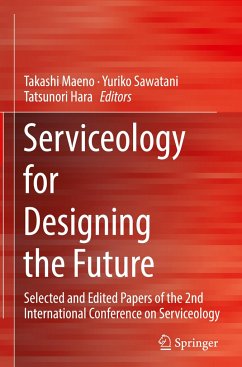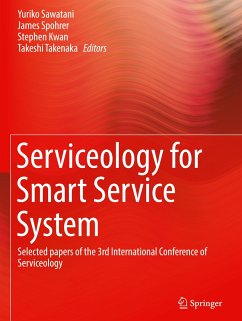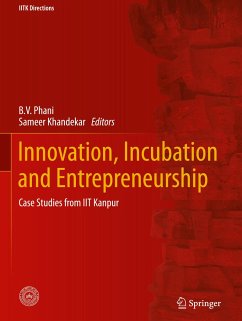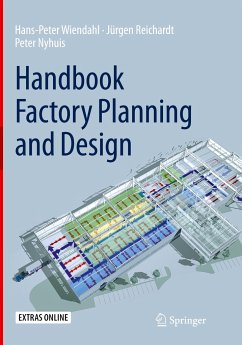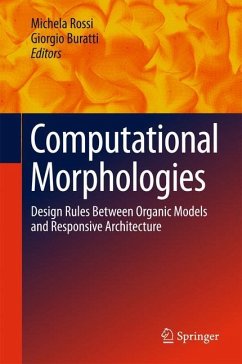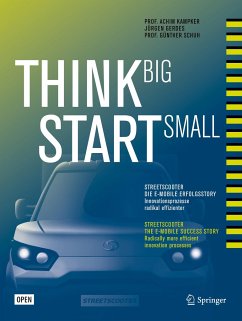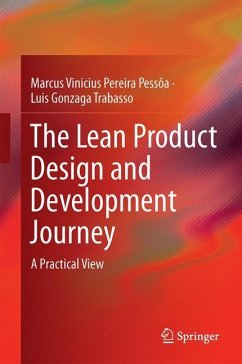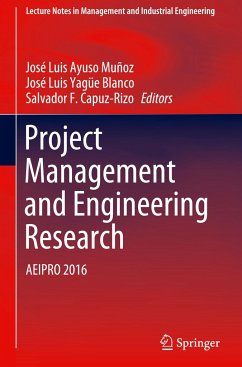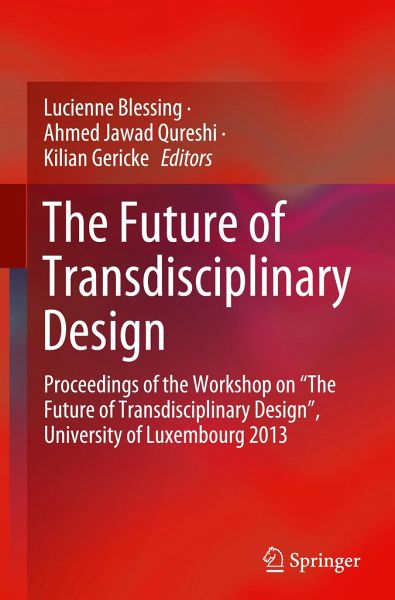
The Future of Transdisciplinary Design
Proceedings of the Workshop on "The Future of Transdisciplinary Design", University of Luxembourg 2013
Herausgegeben: Blessing, Lucienne; Qureshi, Ahmed Jawad; Gericke, Kilian

PAYBACK Punkte
57 °P sammeln!
This book presents the state-of-the-art research in the field of transdisciplinary design, and highlights the challenges and issues from the perspectives of processes, people and products in transdisciplinary product design and development. It collates research papers resulting from the 'Workshop on the Future of Transdisciplinary Design' written by leading researchers in engineering design and product development. The papers provide examples and case studies from existing practices, as well as future perspectives towards the development of the complex and ever-changing domains of engineering ...
This book presents the state-of-the-art research in the field of transdisciplinary design, and highlights the challenges and issues from the perspectives of processes, people and products in transdisciplinary product design and development. It collates research papers resulting from the 'Workshop on the Future of Transdisciplinary Design' written by leading researchers in engineering design and product development. The papers provide examples and case studies from existing practices, as well as future perspectives towards the development of the complex and ever-changing domains of engineering design and product development, with an emphasis on transdisciplinarity.
'The Future of Transdisciplinary Design' contains a selection of research papers in the following areas related to transdisciplinary design:
-Approaches
-Tools and methods
-Management and collaboration
-Distributed and culturally diverse teams
-Modeling, representing and managing information
-Education and training
A transdisciplinary design process is a design process involving the integrated use of knowledge, methods and tools from various disciplines. Design of product/services increasingly requires cross-disciplinary collaboration, and integration of specialized knowledge from different disciplines is necessary to tackle complex and large scale design problems. This book provides a valuable reference to researchers, professionals and PhD students in the field of engineering design and product development. Design practitioners and those involved in product development in the manufacturing industry will equally benefit from the research presented as well as future advances in this research.
'The Future of Transdisciplinary Design' contains a selection of research papers in the following areas related to transdisciplinary design:
-Approaches
-Tools and methods
-Management and collaboration
-Distributed and culturally diverse teams
-Modeling, representing and managing information
-Education and training
A transdisciplinary design process is a design process involving the integrated use of knowledge, methods and tools from various disciplines. Design of product/services increasingly requires cross-disciplinary collaboration, and integration of specialized knowledge from different disciplines is necessary to tackle complex and large scale design problems. This book provides a valuable reference to researchers, professionals and PhD students in the field of engineering design and product development. Design practitioners and those involved in product development in the manufacturing industry will equally benefit from the research presented as well as future advances in this research.





